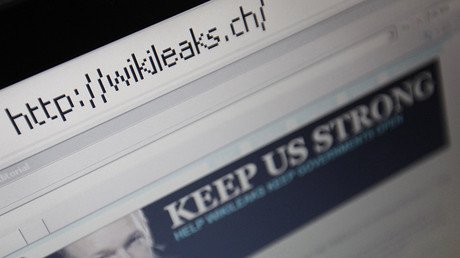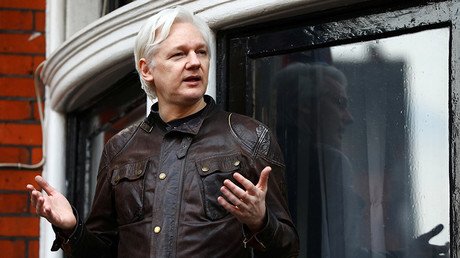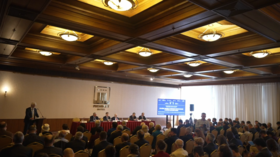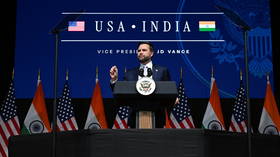The US Senate is trying to brand WikiLeaks a ‘hostile intelligence service’ — whatever that means
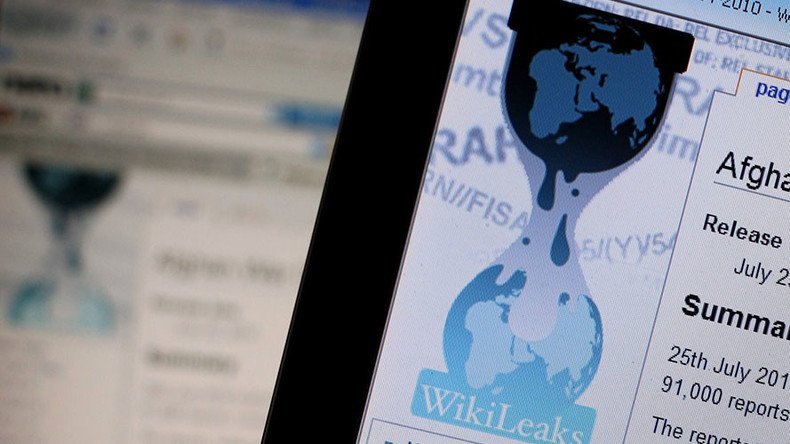
The US Senate Intelligence Committee published its annual intelligence spending bill this week — and nested in the bill is a provision which would declare WikiLeaks to be a “non-state hostile intelligence service”.
In an interview with the Daily Beast, Mieke Eoyang, a former House intelligence committee staffer, said the move would open WikiLeaks up to more extensive surveillance by the US government, allowing the intelligence community to “collect against [WikiLeaks] in the same way they collect against al-Qaeda”.
.@JulianAssange blasts ‘absurd’ bid to class @wikileaks a hostile intelligence service https://t.co/AixDwlGrK4
— RT (@RT_com) August 24, 2017
Lone dissenter
The bill which includes the WikiLeaks provision was voted on last month by the Senate intelligence committee. It passed 14-1, with Oregon senator Ron Wyden being the only dissenter. Wyden, a Democrat, explained that he voted against the bill due to the “legal, constitutional and policy implications” of the WikiLeaks provision.
In particular, Wyden said, he worried that the phrasing “non-state hostile intelligence service” could be applied to journalists enquiring about government secrets or using information released by WikiLeaks.
But that really is the whole point of the exercise. The Senate is doing its best to discredit WikiLeaks as a transparency organization and credible source of information. Those who associate with WikiLeaks in any way — by publishing information released by WikiLeaks for example — would be tarred with the same brush. Wyden, no fan of WikiLeaks himself, cautioned against the introduction of “vague, undefined new categories of enemies” of the US.
“Sense of Congress”
In effect, the bill would establish a “sense of Congress” that WikiLeaks resembles a hostile intelligence service and is “abetted by state actors” and should be “treated as such” by the government.
“Sense of Congress” proposals are not legally binding and are not sent to the president for his signature. They have no formal effect and simply express the opinion of Congress. That, however, does not mean they are irrelevant. Sense of Congress resolutions are often used by Congress to appeal to the president, in an attempt to make him take some specific action. They are also used to express the opinion of Congress to the government of a foreign nation.
In this case, Congress is essentially signaling its approval, its encouragement even, for any hostile action the government may wish to take against WikiLeaks — and signaling to Russia that the US Congress regards the whistle-blowing site as an arm of Russian intelligence. That is thanks to a concerted effort to link WikiLeaks founder Julian Assange to the Russian government — one which moved into a high gear when he began publishing information which hurt Hillary Clinton’s campaign for president.
Real world effects?
There are some serious questions surrounding the potential real world effects of labelling WikiLeaks a hostile intelligence service.
If WikiLeaks was to be formally classified as an entity hostile to the US, would American citizens be allowed to donate to the website? Would journalists be forbidden to use materials published by WikiLeaks in their reporting?
In an interview on the Liberty Report with former senator Ron Paul, ex-CIA officer Philip Giraldi argued against this labelling, saying that WikiLeaks does not have its own intelligence capabilities, rather it simply publishes material given to it by other people. Treating WikiLeaks as an intelligence agency would mean the government could go after the organization more aggressively, whether that meant hacking its facilities — or indeed, going after people who cooperate with WikiLeaks in any way, shape or form and even prosecuting them.
Paul himself pointed out that while the head of WikiLeaks Julian Assange is not even an American citizen, the US is “obsessed with trying to put him in jail”. This has been the case ever since WikiLeaks’ founding in 2006, but particularly since 2010 when the organization released massive caches of US military field reports and logs containing damning information previously unknown to the public about the Iraq and Afghanistan wars.
On what basis?
It’s important to remember that there is no real evidence with which to brand WikiLeaks an arm of the Kremlin or any other state actor. There is no legitimate reason to target the organization using some new undefined, politically-motivated term which means nothing and everything at the same time.
If WikiLeaks can be declared a hostile entity for publishing inconvenient truths about the US government, then there’s no reason why any other organization or media outlet couldn’t also be branded a hostile entity, too. This should raise serious concerns for major American news organizations and the journalists who work for them, but there has been scant coverage of the Senate’s efforts in this regard so far.
On the subject of definitions, First Amendment lawyer Floyd Abrams told The Intercept that the provision on WikiLeaks is worrying, because it “has the sound of some official finding, which it is not, with some legal meaning to it, which it is not”.
Blatant hypocrisy
What cannot be disputed is that regardless of one’s personal opinions on WikiLeaks and Assange, the fact remains that the organization has maintained an accuracy record of 100% in all the years it has been publishing information.
No one is challenging the authenticity of the information or documents released by WikiLeaks. This is a blatant attempt to discredit an organization that exposes government deception. The US government’s real problem with WikiLeaks is not that is ‘in cahoots with Russia’, or that it is a ‘non-state hostile intelligence service’ — rather that it publishes information that Congress and the White House would prefer to remain secret.
The statements, views and opinions expressed in this column are solely those of the author and do not necessarily represent those of RT.

